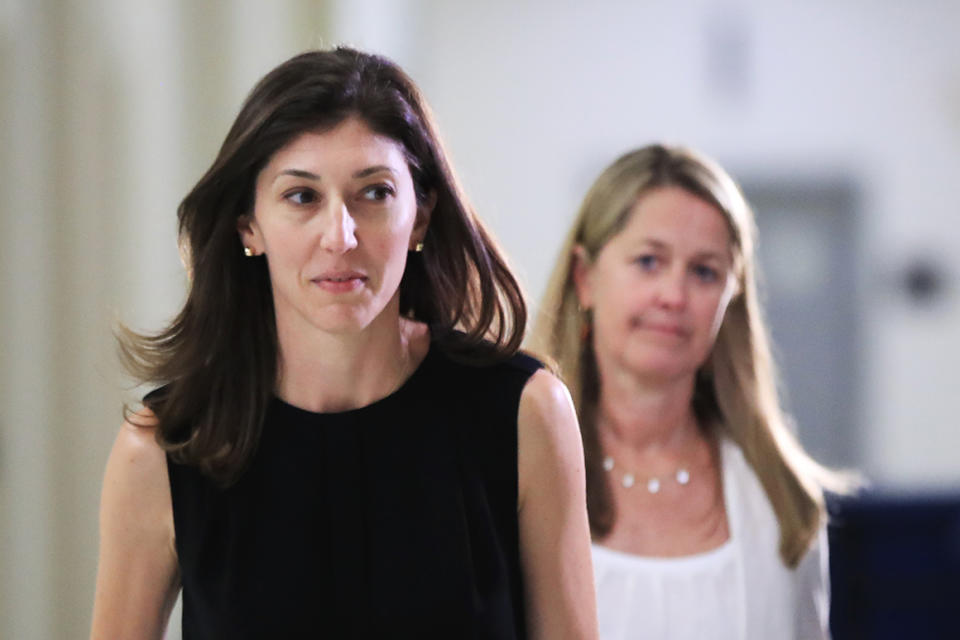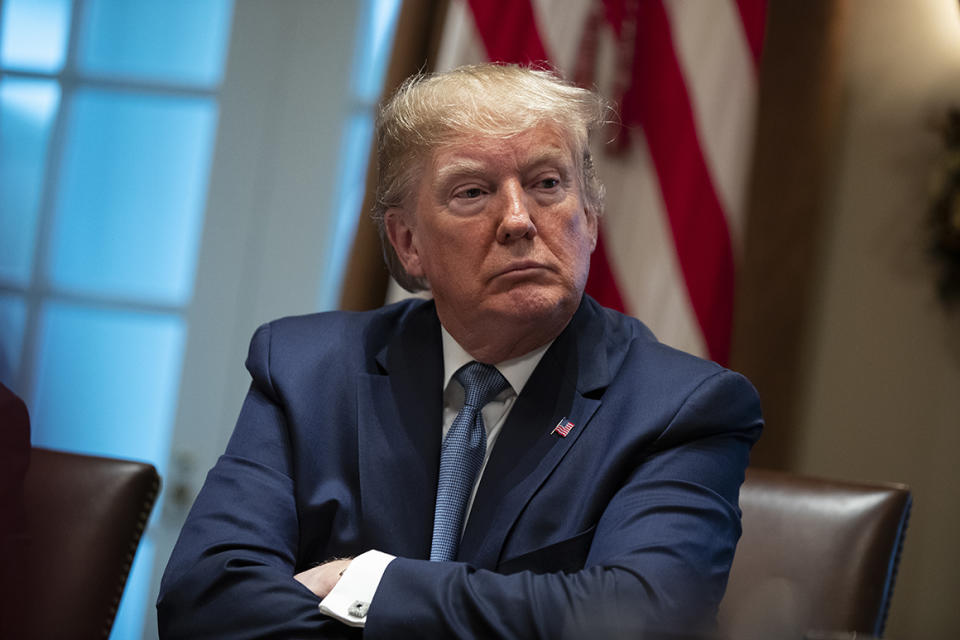Here are the Russia probe conspiracy theories debunked by the DOJ inspector general report
The release on Monday of a long-awaited watchdog report threw plenty of bones to partisans on both sides of the aisle. While the Justice Department’s inspector general, Michael Horowitz, ripped the FBI‘s handling of applications for surveillance warrants on members of the Trump campaign, he also determined that the yearslong investigation into whether President Donald Trump or members of his 2016 campaign colluded with Russia to interfere in his election had not been tainted by political bias and was adequately predicated.
It also debunked a number of conspiracy theories advanced by the president or his allies over the last several years. Here are some of the top claims refuted by Horowitz‘s report.
The Steele dossier didn’t play a role in opening the Russia probe
Horowitz faulted investigators for various aspects of their use of the so-called Steele dossier, including relying too heavily on it for warrants for surveillance applications when concerns had been raised about its validity and its source of funding. But Horowitz refuted the claims propagated by Trump that the Russia investigation had its roots in the unverified, salacious allegations in the dossier.
The FBI began its investigation at the end of July 2016, based on a tip it received days before about a Trump campaign adviser, George Papadopoulos, from a foreign ally.
While Steele’s reporting for what became the dossier began prior to the opening of the Russia probe, Horowitz found that the team of investigators at the FBI “did not become aware of Steele‘s election reporting” until weeks after the investigation had already begun, concluding that the dossier “played no role” in the probe being opened.
Neither did Lisa Page or Peter Strzok
Trump has repeatedly attacked Lisa Page, a former FBI lawyer, and Peter Strzok, a former top FBI agent, who were both removed from the Russia investigation after text messages uncovered between the two showed “hostility“ toward Trump during his candidacy.

The president and his supporters have long pointed to Page and Strzok as evidence of a “deep state" apparatus and proof of political bias at the heart of the investigation into his candidacy. But the inspector general’s report determined that in Page‘s case, while she attended several discussions regarding the launch of the Russia probe, she had no role in its opening.
And while Strzok was “directly involved“ in the decision to investigate the Trump campaign, according to Horowitz, the watchdog found that “he was not the sole, or even the highest-level, decision maker“ in any of those matters.
Obama never wiretapped Trump Tower
Less than two months after his inauguration in 2017, Trump lobbed the explosive allegation that former President Barack Obama had his “wires tapped“ at Trump Tower “just before the victory.“
The watchdog report mentions no such surveillance, which Trump never provided corroborating evidence for. Moreover, the report found that there was only one member of the Trump campaign whom law enforcement officials requested court approval to wiretap: Carter Page.
Though charges were ultimately brought against three other Trump campaign officials, the inspector general said he found no evidence that investigators ever seriously sought or obtained permission to conduct surveillance on other members of the campaign, including adviser George Papadopoulos, campaign chairman Paul Manafort or Michael Flynn, the eventual national security adviser.
“Although the team also was interested in seeking FISA surveillance targeting Papadopoulos, the FBI [Office of General Counsel] attorneys were not supportive,” Horowitz wrote in the report. “FBI and [National Security Division] officials told us that the Crossfire Hurricane team ultimately did not seek FISA surveillance of Papadopoulos, and we are aware of no information indicating that the team requested or seriously considered FISA surveillance of Manafort or Flynn.”
The FBI didn’t implant spies in Trump’s campaign
The FBI did not embed sources inside Trump‘s campaign, and the sources they did have inside and associated with the campaign were not used in the Russia investigation, contrary to claims pushed by Trump and his supporters.
Trump and his allies have claimed numerous times that the FBI under Obama had implanted a spy among his campaign, another potentially explosive accusation, dubbed “Spygate,” that was debunked by Horowitz.

The inspector general found that although investigators had informants, or confidential human sources, “with either a connection to candidate Trump or a role in the Trump campaign,” and one of those sources provided the bureau with information about Page and Manafort, that informant was unaware of the ongoing investigation. Furthermore, Horowitz found, the information they provided was open-source — “[a]II over the Internet.“
Horowitz wrote: “Although the Crossfire Hurricane team was aware of these CHSs during the 2016 presidential campaign, we were told that operational use of these CHSs would not have furthered the investigation, and so these CHSs were not tasked with any investigative activities.“
Joseph Mifsud was never an FBI informant
Another theory advanced by Trump and his allies involved the role played by a professor named Joseph Mifsud, a Russian proxy who informed Trump campaign aide George Papadopoulos that the Kremlin had “dirt“ on Trump‘s 2016 opponent Hillary Clinton. That interaction, which Papadopoulos pleaded guilty to lying to the FBI about, set off the series of events that began the Russia probe.
Horowitz reiterated in his report that the Russia investigation was first opened after Papadopoulos boasted about the revelation to an Australian diplomat, prompting Australian officials to alert their U.S. counterparts.
Papadopoulos has since claimed, without evidence, that Mifsud was actually an intelligence asset sent to entrap the Trump campaign, a suggestion shot down in Horowitz‘s report.
“The FBI‘s Delta files contain no evidence that Mifsud has ever acted as an FBI CHS and none of the witnesses we interviewed or documents we reviewed had any information to support such an allegation,“ the report reads.

